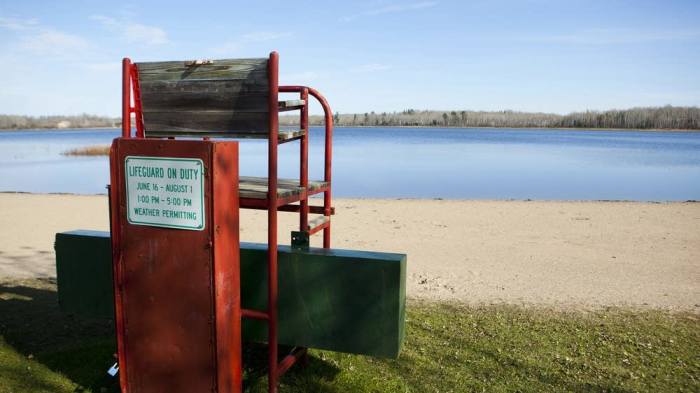The decline of the American teenager’s summer job is a multifaceted issue with far-reaching implications. This phenomenon, characterized by a decrease in the number of teenagers holding summer jobs, has become a growing concern for policymakers, educators, and businesses alike.
This analysis delves into the causes, impacts, and potential solutions surrounding this critical issue.
Causes of Decline
The decline of summer jobs for American teenagers can be attributed to several societal and economic factors. Firstly, there has been a significant shift in societal values towards education and extracurricular activities. Parents and educators emphasize academic achievement and participation in competitive extracurricular activities, leaving less time for summer employment.
Data indicates an increase in academic pressure and competition. Standardized testing, rigorous coursework, and college applications have intensified the need for students to focus on their studies. This has led to a reduction in the availability of teenagers for summer jobs.
Moreover, the changing nature of work and the need for higher skills have contributed to the decline. Many entry-level jobs that were once filled by teenagers now require specialized knowledge or technical skills. This mismatch between skills and job requirements has made it more difficult for teenagers to find suitable summer employment.
Impact on Teenagers

The decline of summer jobs has significant implications for teenagers. It deprives them of opportunities for skill development and work experience. Summer jobs provide valuable hands-on learning experiences that enhance problem-solving, communication, and teamwork skills.
Furthermore, the lack of summer employment can negatively impact teenagers’ social and emotional well-being. Summer jobs offer a sense of purpose, responsibility, and financial independence. Without these experiences, teenagers may feel less connected to the workforce and less prepared for adult life.
Additionally, the decline in summer jobs can affect career aspirations and financial independence. Summer employment allows teenagers to explore different career paths, gain experience in their fields of interest, and earn money to support their education or future goals.
Impact on Businesses: The Decline Of The American Teenager’s Summer Job

The shortage of teenage workers has also impacted businesses. Many industries, such as retail, hospitality, and landscaping, rely heavily on seasonal teenage labor. The decline in summer jobs has made it challenging for businesses to find and retain staff, leading to operational difficulties.
The challenges in finding and retaining seasonal staff have financial implications for businesses. Increased labor costs, reduced productivity, and lost revenue are potential consequences of the shortage of teenage workers.
Furthermore, the decline in summer jobs can have negative economic consequences for local economies. Teenage spending contributes to local businesses, supporting economic growth and job creation.
Policy and Intervention
To address the decline in summer jobs, policymakers and stakeholders can implement various strategies.
| Intervention Strategy | Potential Effectiveness |
|---|---|
| Job training programs | Enhance skills and employability of teenagers |
| Tax incentives for businesses hiring teenagers | Reduce labor costs and encourage hiring |
| School-based summer employment programs | Provide structured work experiences and mentorship |
| Community organizations offering summer jobs | Increase access to employment opportunities |
Schools and community organizations play a vital role in promoting summer employment. They can collaborate with businesses to identify job opportunities and provide support to teenagers seeking work experience.
Future Trends

The decline in summer jobs is expected to continue in the future. Technology and automation are likely to further impact teenage employment opportunities. Artificial intelligence, robotics, and self-checkout systems are already reducing the need for human labor in certain industries.
To adapt to these changes, it is essential to prepare future generations for the evolving job market. This includes providing them with STEM skills, critical thinking abilities, and adaptability. Additionally, policies and interventions that support teenage employment should be continuously evaluated and updated to address emerging challenges.
FAQ Insights
Why has the number of teenagers holding summer jobs declined?
The decline is attributed to factors such as increased academic pressure, changing societal values, and the evolving nature of work.
What are the consequences of the decline in summer jobs for teenagers?
Teenagers may miss out on opportunities for skill development, work experience, and financial independence, potentially affecting their career aspirations and social well-being.
How does the decline in summer jobs impact businesses?
Businesses face challenges in finding and retaining seasonal workers, which can disrupt operations and have economic consequences for local economies.